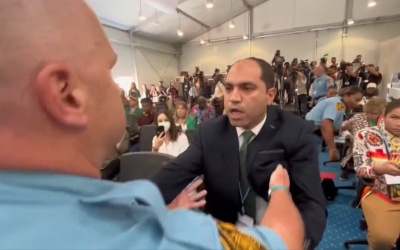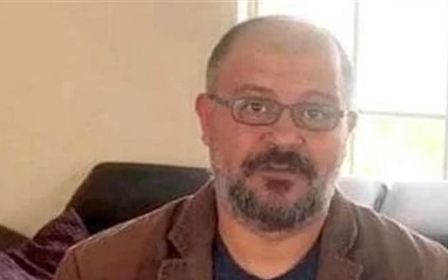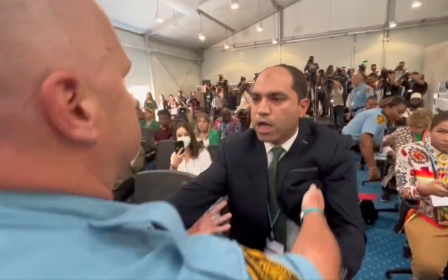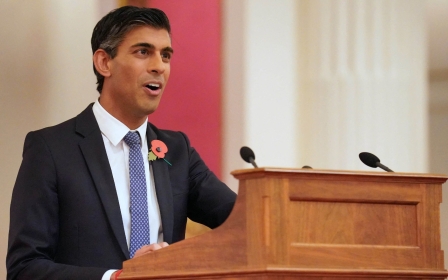Egypt: Alaa Abd el-Fattah given 'medical intervention' by authorities, says family
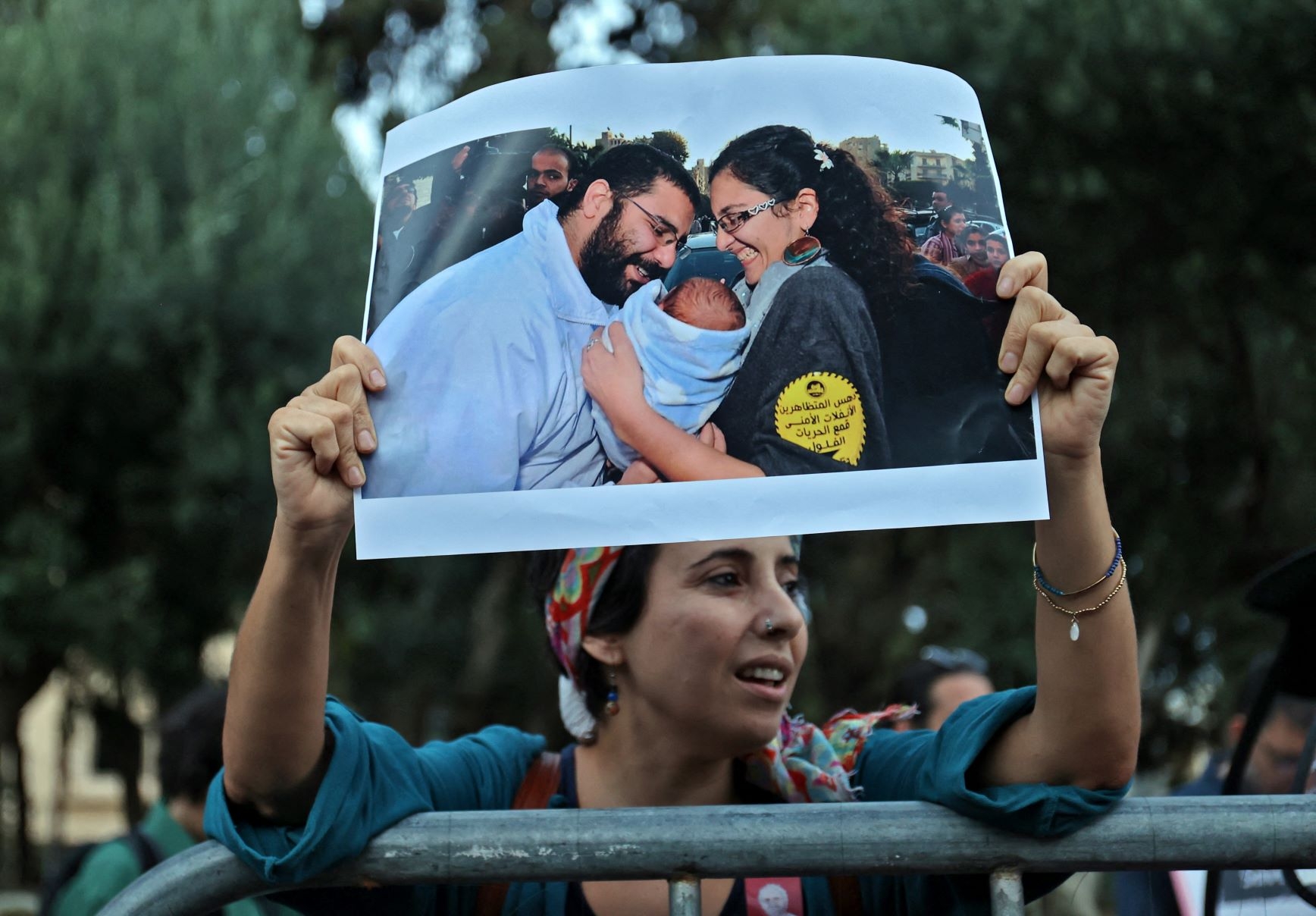
Hunger striking British-Egyptian activist Alaa Abd el-Fattah is being administered with a “medical intervention” in a Cairo prison, his family said on Thursday.
Following a seven-month hunger strike during which he only consumed 100 calories per day, Abd el-Fattah stopped drinking water on Sunday to coincide with the opening of the United Nations Cop27 climate summit in Egypt's Sharm el-Sheikh.
His sister Mona Seif tweeted that his mother Laila Soueif had been informed of the latest information on his condition.
"They just told mama she is not allowed to stay by the prison, confirmed that 'medical intervention has been taken with Alaa with the knowledge of judicial entities'" she wrote.
"How can they not inform us and the lawyers?? How can we not see Alaa ourselves!!"
New MEE newsletter: Jerusalem Dispatch
Sign up to get the latest insights and analysis on Israel-Palestine, alongside Turkey Unpacked and other MEE newsletters
Later, prominent human rights lawyer Khaled Ali said he had been granted a visitation permit to visit Abd el-Fattah in prison and was en route to the prison.
Widely considered Egypt's best-known dissident, Abd el-Fattah has spent the better part of the past decade behind bars.
His plight has hit headlines again against the backdrop of the Cop27 climate conference, taking place in Sharm el-Sheikh from 6-18 November, amid tight restrictions on peaceful assembly and free speech.
A number of senior figures have publicly called for his release during the conference.
UN rights chief Volker Turk on Tuesday said Abd el-Fattah needed to be released, warning his life was "in great danger".
"I urge the Egyptian government to immediately release Abd el-Fattah from prison and provide him with the necessary medical treatment," Turk said in a statement.
Later on Tuesday, German Chancellor Olaf Scholz also chimed in with calls for the activist's release.
"There must be a decision - his release must be possible, so that this hunger strike does not end in death," he said, adding the situation was "very depressing" and "we should be afraid that this could lead to dreadful consequences."
At least 60,000 political prisoners are estimated to have been jailed since Egyptian President Abdel Fattah el-Sisi overthrew Mohamed Morsi, the country's first democratically elected president, in 2013.
Middle East Eye delivers independent and unrivalled coverage and analysis of the Middle East, North Africa and beyond. To learn more about republishing this content and the associated fees, please fill out this form. More about MEE can be found here.


